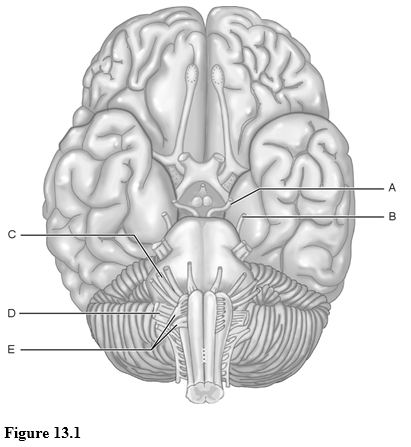Parts of the mouth
What will be an ideal response?
Upper lip, hard palate, soft palate, uvula, palatine tonsils, tongue (lingual), lingual frenulum, vestibule, lower lip
You might also like to view...
Which of the following membranes covers the surface of visceral organs?
A) synovial B) plasma C) serous D) cutaneous E) mucous
Using Figure 13.1, match the following:

1) Innervates the superior oblique muscle.
2) Longest cranial nerve.
3) Damage to this nerve would cause dizziness, nausea, and loss of balance.
4) Involved in movement of the digestive tract.
5) Damage to this nerve would cause difficulty in speech and swallowing, but no effect on visceral organs.
6) Damage to this nerve would keep the eye from rotating inferolaterally.
Which of the following hormones passes through the hypothalamo-hypophysial tract?
A. Adrenocorticotropic hormone B. Prolactin-inhibiting hormone C. Thyroid-stimulating hormone D. Luteinizing hormone E. Antidiuretic hormone
Generally, the shorter the half-life of a hormone
A. the more frequently it must be replaced. B. the less frequently it must be replaced.